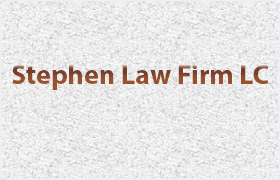Suwanee RICO Act Lawyer, Georgia
Sponsored Law Firm
-
 x
x

Click For More Info:
-
Stephen Law Firm LC
4411 Suawanee Dam Rd Suite 820 Suwanee, GA 30024» view mapCriminal Law Exceptional Representation
We are a general practice law firm with offices located in North and South Gwinnett.
800-871-0830
Not enough matches for Suwanee RICO Act lawyer.
Below are all Suwanee Criminal lawyers.
Stephen Francis Suarino
✓ VERIFIEDAccident & Injury, Bankruptcy & Debt, Divorce & Family Law, Criminal
Stephen Suarino is an Immigration, Real Estate, Accident & Injury, Estate, and General Practice lawyer in Norcross, Georgia.
Wayne Lancaster
Divorce & Family Law, Criminal, Wills & Probate, Accident & Injury, Divorce
Status: In Good Standing Licensed: 35 Years
FREE CONSULTATION
CONTACTJodie E. Rosser
Commercial Real Estate, Real Estate, DUI-DWI, Criminal
Status: In Good Standing Licensed: 21 Years
Michael John O'Hagan
Family Law, Divorce & Family Law, Criminal
Status: In Good Standing Licensed: 21 Years
 Stephen Law Firm Suwanee, GA
Stephen Law Firm Suwanee, GA AboutStephen Law Firm LC
AboutStephen Law Firm LC Practice AreasSpecializations
Practice AreasSpecializations

